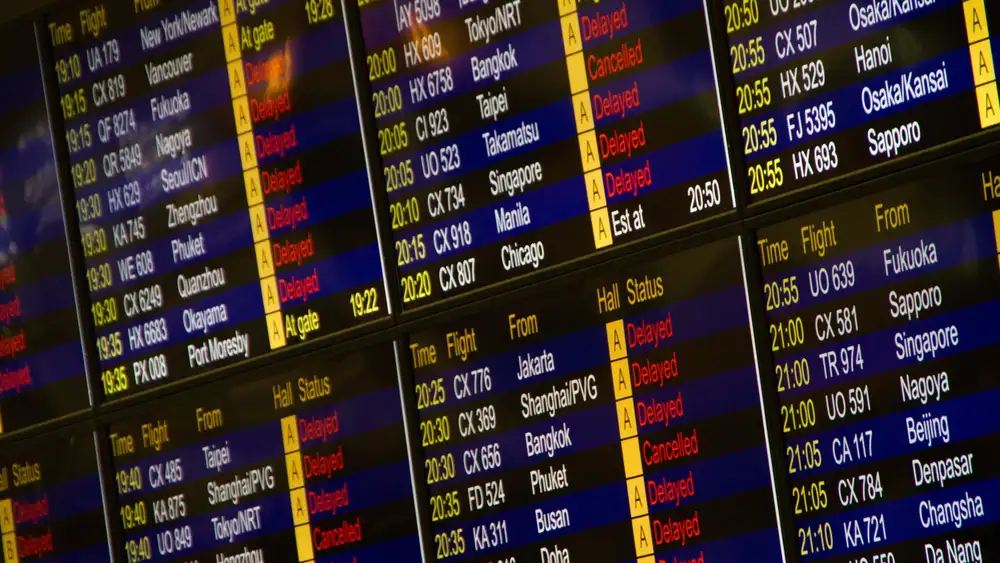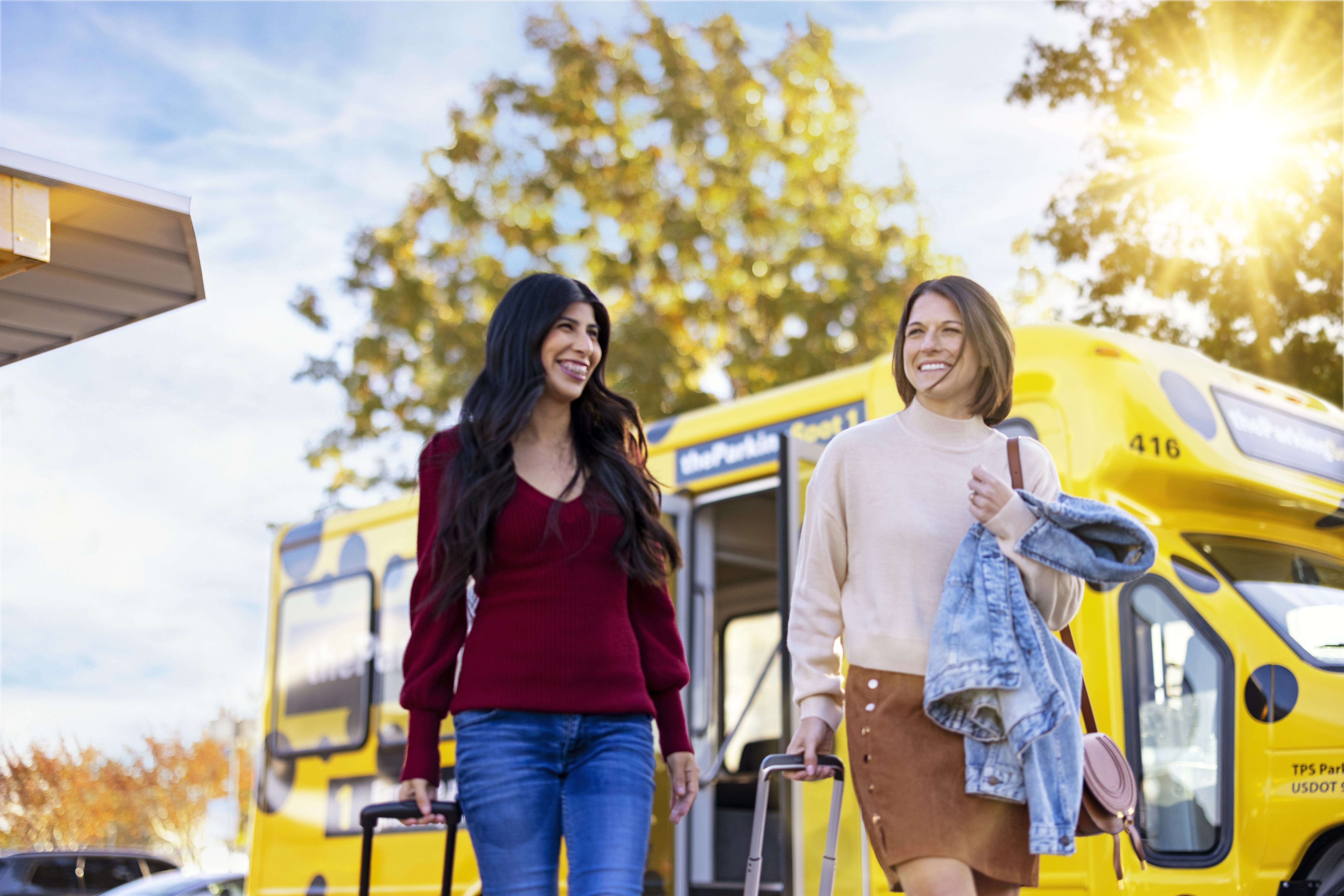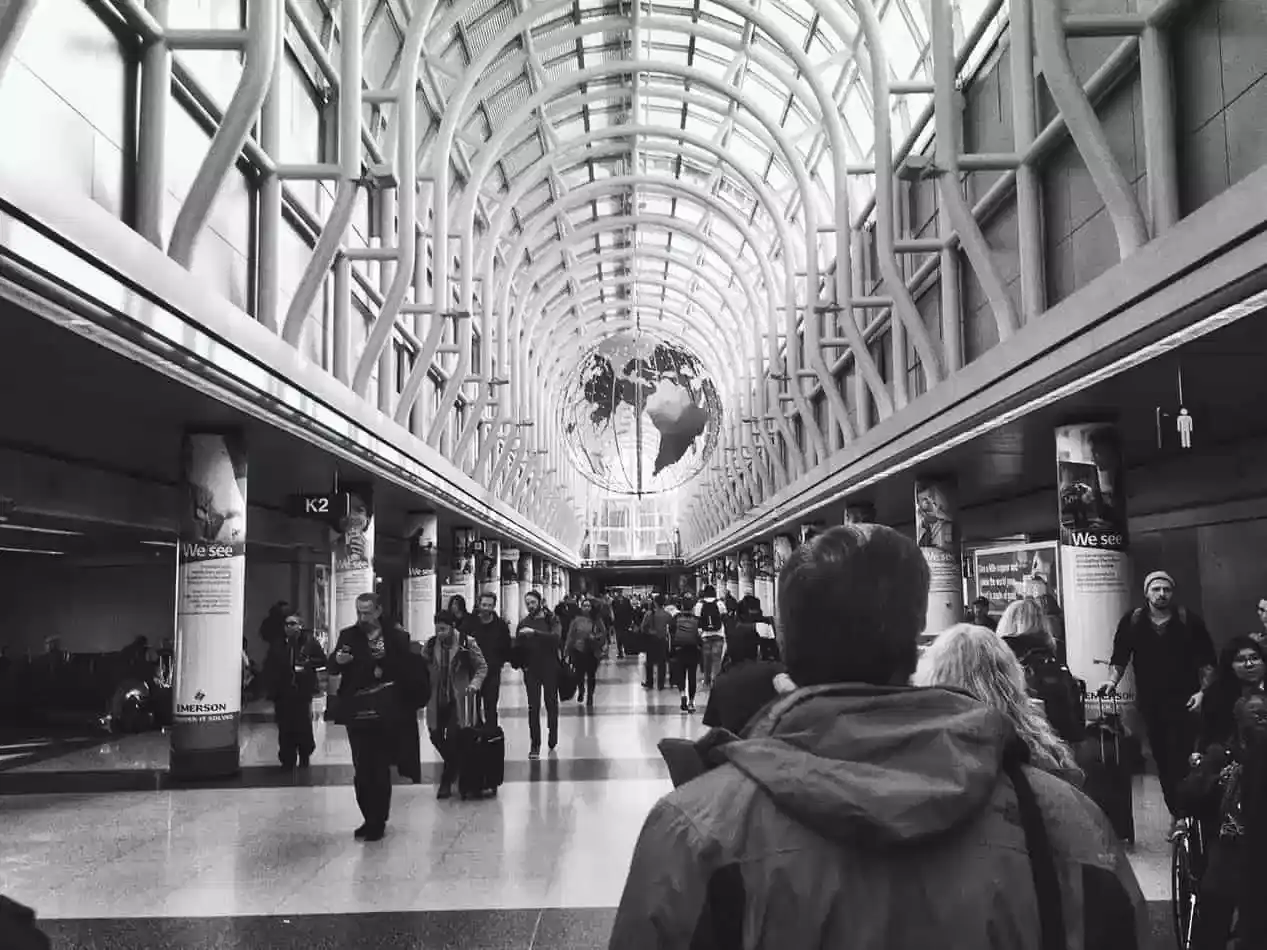[{"id":35,"name":"Anchorage","code":"ANC","marketID":32,"marketName":"Anchorage","stateName":"Alaska","numberOfFacilities":1,"facilityTypeID":4,"airportDisplayTypeID":3,"useNewDesigns":false},{"id":10,"name":"Atlanta","code":"ATL","marketID":10,"marketName":"Atlanta","stateName":"Georgia","numberOfFacilities":4,"facilityTypeID":1,"airportDisplayTypeID":1,"useNewDesigns":false},{"id":8,"name":"Austin","code":"AUS","marketID":23,"marketName":"Austin","stateName":"Texas","numberOfFacilities":2,"facilityTypeID":1,"airportDisplayTypeID":1,"useNewDesigns":false},{"id":12,"name":"Baltimore","code":"BWI","marketID":7,"marketName":"Baltimore","stateName":"Maryland","numberOfFacilities":2,"facilityTypeID":1,"airportDisplayTypeID":1,"useNewDesigns":false},{"id":36,"name":"Birmingham","code":"BHM","marketID":33,"marketName":"Birmingham","stateName":"Alabama","numberOfFacilities":1,"facilityTypeID":4,"airportDisplayTypeID":3,"useNewDesigns":false},{"id":37,"name":"Boston","code":"BOS","marketID":34,"marketName":"Boston","stateName":"Massachusetts","numberOfFacilities":1,"facilityTypeID":4,"airportDisplayTypeID":3,"useNewDesigns":false},{"id":18,"name":"Buffalo","code":"BUF","marketID":13,"marketName":"Buffalo","stateName":"New York","numberOfFacilities":1,"facilityTypeID":1,"airportDisplayTypeID":1,"useNewDesigns":false},{"id":39,"name":"Burlington","code":"BTV","marketID":36,"marketName":"Burlington","stateName":"Vermont","numberOfFacilities":1,"facilityTypeID":4,"airportDisplayTypeID":3,"useNewDesigns":false},{"id":27,"name":"Charlotte","code":"CLT","marketID":24,"marketName":"Charlotte","stateName":"North Carolina","numberOfFacilities":1,"facilityTypeID":1,"airportDisplayTypeID":1,"useNewDesigns":false},{"id":30,"name":"Chicago Midway","code":"MDW","marketID":2,"marketName":"Chicago","stateName":"Illinois","numberOfFacilities":1,"facilityTypeID":1,"airportDisplayTypeID":1,"useNewDesigns":false},{"id":22,"name":"Chicago O\u0027Hare","code":"ORD","marketID":2,"marketName":"Chicago","stateName":"Illinois","numberOfFacilities":1,"facilityTypeID":4,"airportDisplayTypeID":3,"useNewDesigns":false},{"id":31,"name":"Cleveland","code":"CLE","marketID":27,"marketName":"Cleveland","stateName":"Ohio","numberOfFacilities":1,"facilityTypeID":1,"airportDisplayTypeID":1,"useNewDesigns":false},{"id":19,"name":"Columbus","code":"CMH","marketID":14,"marketName":"Columbus","stateName":"Ohio","numberOfFacilities":1,"facilityTypeID":1,"airportDisplayTypeID":1,"useNewDesigns":false},{"id":5,"name":"Dallas Fort Worth","code":"DFW","marketID":21,"marketName":"Dallas","stateName":"Texas","numberOfFacilities":3,"facilityTypeID":1,"airportDisplayTypeID":1,"useNewDesigns":false},{"id":4,"name":"Dallas Love","code":"DAL","marketID":21,"marketName":"Dallas","stateName":"Texas","numberOfFacilities":2,"facilityTypeID":1,"airportDisplayTypeID":1,"useNewDesigns":false},{"id":40,"name":"Dayton","code":"DAY","marketID":37,"marketName":"Dayton","stateName":"Ohio","numberOfFacilities":1,"facilityTypeID":4,"airportDisplayTypeID":3,"useNewDesigns":false},{"id":2,"name":"Denver","code":"DEN","marketID":19,"marketName":"Denver","stateName":"Colorado","numberOfFacilities":2,"facilityTypeID":1,"airportDisplayTypeID":1,"useNewDesigns":false},{"id":41,"name":"Des Moines","code":"DSM","marketID":38,"marketName":"Des Moines","stateName":"Iowa","numberOfFacilities":1,"facilityTypeID":4,"airportDisplayTypeID":3,"useNewDesigns":false},{"id":43,"name":"Fort Lauderdale","code":"FLL","marketID":40,"marketName":"Fort Lauderdale","stateName":"Florida","numberOfFacilities":3,"facilityTypeID":4,"airportDisplayTypeID":3,"useNewDesigns":false},{"id":44,"name":"Fort Myers","code":"RSW","marketID":41,"marketName":"Fort Myers","stateName":"Florida","numberOfFacilities":2,"facilityTypeID":4,"airportDisplayTypeID":3,"useNewDesigns":false},{"id":29,"name":"Hartford","code":"BDL","marketID":26,"marketName":"Hartford","stateName":"Connecticut","numberOfFacilities":1,"facilityTypeID":1,"airportDisplayTypeID":1,"useNewDesigns":false},{"id":7,"name":"Houston George Bush","code":"IAH","marketID":22,"marketName":"Houston","stateName":"Texas","numberOfFacilities":3,"facilityTypeID":1,"airportDisplayTypeID":1,"useNewDesigns":false},{"id":6,"name":"Houston Hobby","code":"HOU","marketID":22,"marketName":"Houston","stateName":"Texas","numberOfFacilities":2,"facilityTypeID":1,"airportDisplayTypeID":1,"useNewDesigns":false},{"id":21,"name":"Kansas City","code":"MCI","marketID":17,"marketName":"Kansas City","stateName":"Missouri","numberOfFacilities":1,"facilityTypeID":1,"airportDisplayTypeID":1,"useNewDesigns":false},{"id":1,"name":"Los Angeles","code":"LAX","marketID":18,"marketName":"Los Angeles","stateName":"California","numberOfFacilities":2,"facilityTypeID":1,"airportDisplayTypeID":1,"useNewDesigns":false},{"id":32,"name":"Miami","code":"MIA","marketID":28,"marketName":"Miami","stateName":"Florida","numberOfFacilities":1,"facilityTypeID":1,"airportDisplayTypeID":2,"useNewDesigns":false},{"id":45,"name":"Milwaukee","code":"MKE","marketID":42,"marketName":"Milwaukee","stateName":"Wisconsin","numberOfFacilities":1,"facilityTypeID":4,"airportDisplayTypeID":3,"useNewDesigns":false},{"id":33,"name":"Minneapolis","code":"MSP","marketID":29,"marketName":"Minneapolis","stateName":"Minnesota","numberOfFacilities":1,"facilityTypeID":1,"airportDisplayTypeID":2,"useNewDesigns":false},{"id":9,"name":"Nashville","code":"BNA","marketID":15,"marketName":"Nashville","stateName":"Tennessee","numberOfFacilities":1,"facilityTypeID":1,"airportDisplayTypeID":1,"useNewDesigns":false},{"id":46,"name":"New Orleans","code":"MSY","marketID":43,"marketName":"New Orleans","stateName":"Louisiana","numberOfFacilities":1,"facilityTypeID":4,"airportDisplayTypeID":3,"useNewDesigns":false},{"id":15,"name":"New York JFK","code":"JFK","marketID":9,"marketName":"New York","stateName":"New York","numberOfFacilities":2,"facilityTypeID":4,"airportDisplayTypeID":3,"useNewDesigns":false},{"id":14,"name":"New York La Guardia","code":"LGA","marketID":9,"marketName":"New York","stateName":"New York","numberOfFacilities":1,"facilityTypeID":4,"airportDisplayTypeID":3,"useNewDesigns":false},{"id":16,"name":"Newark","code":"EWR","marketID":3,"marketName":"Newark","stateName":"New Jersey","numberOfFacilities":1,"facilityTypeID":1,"airportDisplayTypeID":1,"useNewDesigns":false},{"id":25,"name":"Oakland","code":"OAK","marketID":30,"marketName":"Bay Area","stateName":"California","numberOfFacilities":1,"facilityTypeID":1,"airportDisplayTypeID":2,"useNewDesigns":false},{"id":47,"name":"Omaha","code":"OMA","marketID":44,"marketName":"Omaha","stateName":"Nebraska","numberOfFacilities":1,"facilityTypeID":4,"airportDisplayTypeID":3,"useNewDesigns":false},{"id":11,"name":"Orlando","code":"MCO","marketID":11,"marketName":"Orlando","stateName":"Florida","numberOfFacilities":1,"facilityTypeID":1,"airportDisplayTypeID":1,"useNewDesigns":false},{"id":13,"name":"Philadelphia","code":"PHL","marketID":8,"marketName":"Philadelphia","stateName":"Pennsylvania","numberOfFacilities":2,"facilityTypeID":1,"airportDisplayTypeID":1,"useNewDesigns":false},{"id":3,"name":"Phoenix","code":"PHX","marketID":20,"marketName":"Phoenix","stateName":"Arizona","numberOfFacilities":3,"facilityTypeID":1,"airportDisplayTypeID":1,"useNewDesigns":false},{"id":17,"name":"Pittsburgh","code":"PIT","marketID":12,"marketName":"Pittsburgh","stateName":"Pennsylvania","numberOfFacilities":1,"facilityTypeID":1,"airportDisplayTypeID":1,"useNewDesigns":false},{"id":48,"name":"Portland","code":"PDX","marketID":45,"marketName":"Portland","stateName":"Oregon","numberOfFacilities":1,"facilityTypeID":4,"airportDisplayTypeID":3,"useNewDesigns":false},{"id":28,"name":"Salt Lake City","code":"SLC","marketID":25,"marketName":"Salt Lake City","stateName":"Utah","numberOfFacilities":1,"facilityTypeID":1,"airportDisplayTypeID":1,"useNewDesigns":false},{"id":24,"name":"San Francisco","code":"SFO","marketID":30,"marketName":"Bay Area","stateName":"California","numberOfFacilities":1,"facilityTypeID":1,"airportDisplayTypeID":2,"useNewDesigns":false},{"id":50,"name":"Seattle","code":"SEA","marketID":47,"marketName":"Seattle","stateName":"Washington","numberOfFacilities":3,"facilityTypeID":4,"airportDisplayTypeID":3,"useNewDesigns":false},{"id":20,"name":"St. Louis","code":"STL","marketID":16,"marketName":"St. Louis","stateName":"Missouri","numberOfFacilities":4,"facilityTypeID":1,"airportDisplayTypeID":1,"useNewDesigns":false},{"id":51,"name":"Washington DC Reagan","code":"DCA","marketID":48,"marketName":"Washington DC","stateName":"District of Columbia","numberOfFacilities":1,"facilityTypeID":4,"airportDisplayTypeID":3,"useNewDesigns":false}]
Destinations, Airport Information, Holiday Travel Ideas, and Trip Advice
At The Parking Spot, our goal is to help you start and complete your journey without hassle that sometimes comes with air travel. Whether you fly for business on your own, getting away for the weekend, or taking the family on a once in lifetime vacation, we want you to have the most accurate, valuable, and recent information from our experts.




